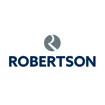Organizational Setting
FAO’s Animal Production and Health Division (NSA) supports member countries to strengthen the contribution of the livestock sector towards the achievement of the Sustainable Development Goals (SDGs). One area of work is the assessment of interactions of livestock systems with the environment. The division has developed a number of tools, such as the Global Livestock Assessment Model (GLEAM) to quantify environmental impacts of livestock systems and uses a lifecycle assessment (LCA) to quantify greenhouse gas emissions and other environmental impacts.
To increase the relevance of the model for designing mitigation interventions and policies, the division plans to expand the scope of the model calculations, update underlying data and methods and develop a new generation of the model (GLEAM-X) as a web application. Moreover, the division implements various projects on fostering methane mitigation and scaling up climate action in the livestock sector in several countries.
Reporting Lines
The Livestock and Environment Specialist reports to the Livestock Policy Officer under the overall guidance of the Chief of Livestock Innovation, Climate and Post-Harvesting Solutions Branch (NSAL).
Technical Focus
The incumbent will support the team in expanding and updating the approaches that are used to quantify emission baselines and the impact of mitigation interventions for livestock systems and recommend and implement new state-of-the art approaches for additional species and emission sources, a systematic collection and harmonization of relevant data sets globally, and adequate documentation following international standards, as well as online visualization and advanced data management and analysis.
Tasks And Responsibilities
- Review the current implementation of livestock/environment assessments and recommend updates, considering international guideline and the scientific literature;
- Develop and implement methods to quantify the impact of selected mitigation strategies on GHG emissions in selected countries;
- Support the preparation guidance documents, webinars, and knowledge document to inform livestock stakeholders;
- Support the preparation of scientific publications and reports on the environmental performance and opportunity that carbon markets offers to enhance the sustainability of the livestock sector;
- Support the development of project proposals to support countries to reduce the environmental impacts of the livestock focusing on biodiversity, nitrogen use efficiency, water use, soil carbon stock change and climate change;
- Contribute to the harmonization and maintenance of livestock related spatial and non-spatial data within the division;
- Support the development of tools and methods to analyse and visualize data;
- Attend meetings and conferences (external and internal), and
- Perform other duties as required.
FAO Standards And Guidelines
- Liaison with OCC will be maintained, either directly or through an agreed focal point/coordinator, to ensure compliance with OCC standards, aligned messaging, and appropriate review and clearance processes.
- All communication materials will follow FAO clearance processes and comply with FAO standards, including:
FAO Strategic Framework 2022-31: https://www.fao.org/strategic-framework/en
FAO social media policy and guidelines: https://www.fao.org/2/socialmedia
Social Media Branding Guidelines: https://openknowledge.fao.org/handle/20.500.14283/cb5044en
FAOSTYLE https://openknowledge.fao.org/handle/20.500.14283/cb8081en
FAO terminology http://www.fao.org/faoterm
FAO Names Of Countries https://www.fao.org/nocs/en
Story guidelines, Story template, UN map standards, FAO logo policy and related branding guidelines (available to staff).
- Further guidance regarding FAO communications, policies and procedures can be found through the FAO intranet, OCC section.
CANDIDATES WILL BE ASSESSED AGAINST THE FOLLOWING
Minimum Requirements
- University degree in Animal Science, Veterinary Medicine, Environmental Engineering, Environmental Science, Biology, Geospatial Data Management, Data Science, or related fields
- At least two years (one year with an advanced university degree) of relevant experience in analyzing and visualizing data related to environmental impacts, preferably related to greenhouse gas emissions (GHG)
- Working knowledge of English
FAO Core Competencies
- Results Focus
- Teamwork
- Communication
- Building Effective Relationships
- Knowledge Sharing and Continuous Improvement
Call For Expressions Of Interest - Vacancy Announcement
Job Posting
06/Jan/2025
Closure Date
21/Jan/2025, 12:59:00 AM
Organizational Unit
NSAL - Livestock Innovation, Climate and Post-harvesting Solutions Branch
Job Type
Non-staff opportunities
Type of Requisition
Consultant / PSA (Personal Services Agreement)
Grade Level
N/A
Primary Location
Home-Based
Duration
11 months
Post Number
N/A
IMPORTANT NOTICE: Please note that Closure Date and Time displayed above are based on date and time settings of your personal device
- FAO is committed to achieving workforce diversity in terms of gender, nationality, background and culture.
- Qualified female applicants, qualified nationals of non-and under-represented Members and person with disabilities are encouraged to apply;
- Everyone who works for FAO is required to adhere to the highest standards of integrity and professional conduct, and to uphold FAO's values
- FAO, as a Specialized Agency of the United Nations, has a zero-tolerance policy for conduct that is incompatible with its status, objectives and mandate, including sexual exploitation and abuse, sexual harassment, abuse of authority and discrimination
- All selected candidates will undergo rigorous reference and background checks
- All applications will be treated with the strictest confidentiality
FAO’s commitment to environmental sustainability is integral to our strategic objectives and operations.




